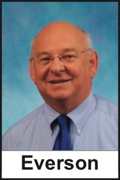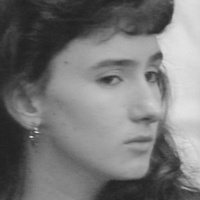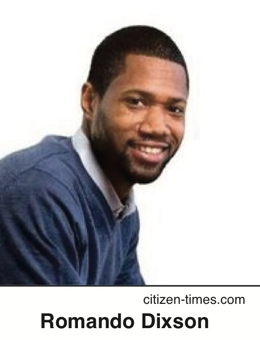Rascals case in brief
In the beginning, in 1989, more than 90 children at the Little Rascals Day Care Center in Edenton, North Carolina, accused a total of 20 adults with 429 instances of sexual abuse over a three-year period. It may have all begun with one parent’s complaint about punishment given her child.
Among the alleged perpetrators: the sheriff and mayor. But prosecutors would charge only Robin Byrum, Darlene Harris, Elizabeth “Betsy” Kelly, Robert “Bob” Kelly, Willard Scott Privott, Shelley Stone and Dawn Wilson – the Edenton 7.
Along with sodomy and beatings, allegations included a baby killed with a handgun, a child being hung upside down from a tree and being set on fire and countless other fantastic incidents involving spaceships, hot air balloons, pirate ships and trained sharks.
By the time prosecutors dropped the last charges in 1997, Little Rascals had become North Carolina’s longest and most costly criminal trial. Prosecutors kept defendants jailed in hopes at least one would turn against their supposed co-conspirators. Remarkably, none did. Another shameful record: Five defendants had to wait longer to face their accusers in court than anyone else in North Carolina history.
Between 1991 and 1997, Ofra Bikel produced three extraordinary episodes on the Little Rascals case for the PBS series “Frontline.” Although “Innocence Lost” did not deter prosecutors, it exposed their tactics and fostered nationwide skepticism and dismay.
With each passing year, the absurdity of the Little Rascals charges has become more obvious. But no admission of error has ever come from prosecutors, police, interviewers or parents. This site is devoted to the issues raised by this case.
On Facebook
Click for earlier Facebook posts archived on this site
Click to go to
Today’s random selection from the Little Rascals Day Care archives….
Click for earlier Facebook posts archived on this site
Click to go to
Today’s random selection from the Little Rascals Day Care archives….
What made Mark Everson an expert witness?
 July 2, 2012
July 2, 2012
Perhaps the prosecution’s most influential expert witness during the 1992 trial of Bob Kelly was psychologist Mark Everson, director of the Program on Childhood Trauma and Maltreatment in UNC Chapel Hill’s department of psychiatry.
Here’s how Everson responded to a defense expert’s testimony that children are suggestible and should not be repeatedly interviewed: “It’s kind of naïve. It’s the kind of statement you really wouldn’t make if you worked with these kids.”
In a Charlotte Observer interview 10 years later, Everson seemed unmoved by the continuing wave of scientific research exposing the fallacy of “Children don’t lie.” He said he found it hard to believe that every Little Rascals child-witness had been badly interviewed and confused: “There’s so much smoke there, it’s hard to imagine there’s no fire.”
Where there’s smoke there’s fire?
Good lord. I wasn’t surprised to hear such naivete from a juror – “Something must have happened,” one told Ofra Bikel — but from a respected UNC faculty member whose opinion influenced whether Bob Kelly would be convicted and imprisoned?
Last week I emailed two questions to Everson at his Chapel Hill office:
– Have you changed your mind?
– How much credence do you give researchers such as Ceci and Bruck who have demonstrated the unreliability of child-witnesses?
I’ve yet to hear back.
But it’s hard to optimistic about a possible reassessment when Everson continues to choose Kathleen Coulborn Faller as his most frequent coauthor.
Defendants’ bond lowered to ‘only’ $200,000

frontline.org
Robin Byrum
Dec. 16, 2015
On this day 25 years ago: Bonds for Little Rascals employees Robin Byrum and Dawn Wilson are reduced to a still excessive $200,000 – Byrum’s from $500,000, Wilson’s from $880,000.
Byrum will be released four days later, Wilson not for eight weeks.
Because she went to trial and the jury returned a guilty verdict (eventually overturned), Wilson’s story is much better known.
But Byrum suffered her own coercive torture at the hands of prosecutors before charges were dropped in 1996.
Nineteen years old when she was arrested in January 1990, she spent almost a year in jail, leaving her 7-month-old baby in the care of her husband. Had she agreed to testify against Bob Kelly, she could have walked out a free woman – and mother.
In “Innocence Lost: The Plea” (1997), Byrum explained why she had been tempted by but repeatedly refused the prosecutors’ deal:
“…. I would not ever have to be separated from my child again. But then I’d have to live with the rest of my life that I (said I) did something when I didn’t do it.”
A national epidemic of supposed ‘remembering’
Aug. 30, 2013
“The Edenton case is not just a horrifying aberration. Adults across the country are suddenly ‘remembering’ that they were abused as children, and filing civil lawsuits and criminal charges against aged parents…
“Claims of long-ago child abuse, ‘blocked out’ from memory until now, have become a common defense tactic. Unscrupulous ‘therapists’ and sensationalist writers feed the frenzy.
“Anything goes against accused abusers, especially the right to a fair trial.”
– From an editorial in the Arkansas Times (Aug. 5, 1993)
Junior Chandler’s homefolks updated on his case
 Sept. 29, 2014
Sept. 29, 2014
“Duke law professor Theresa Newman has three boxes full of files about Andrew Chandler Jr.’s case: details about the bizarre allegations, the expert testimony that would not be admissible today and the multiple appeals….”
– From “Duke law clinic to review 1987 conviction” in the Asheville Citizen-Times (Sept. 27)
Thanks to reporter Romando Dixson for providing a thorough recap of the Chandler case, pegged to the recently expressed interest of the Duke Law School Wrongful Convictions Clinic.
Publication in the Asheville paper is especially welcome for Junior’s friends, family and other supporters in nearby Madison County, who likely haven’t seen the case mentioned in print since his conviction in 1987.











0 CommentsComment on Facebook